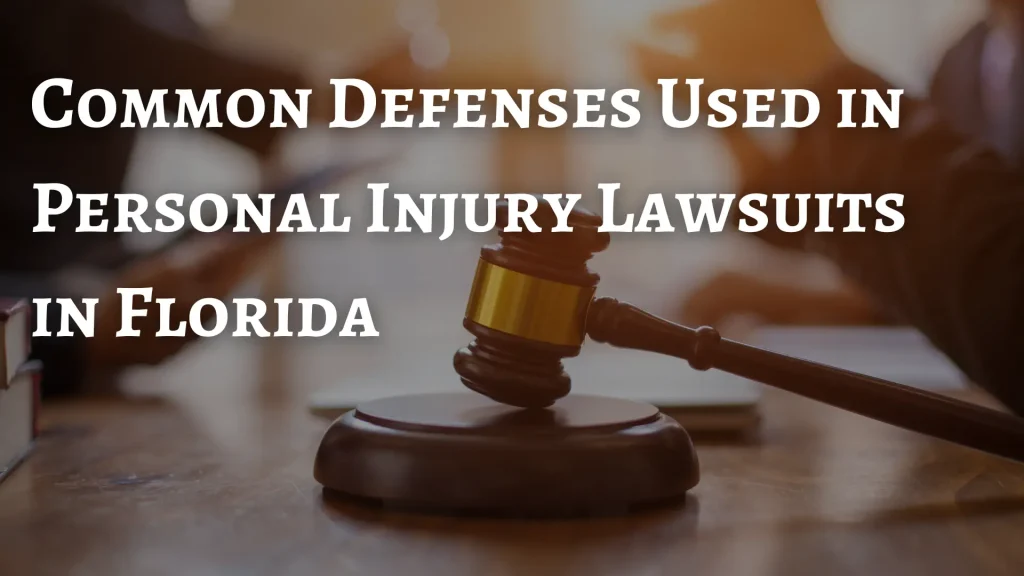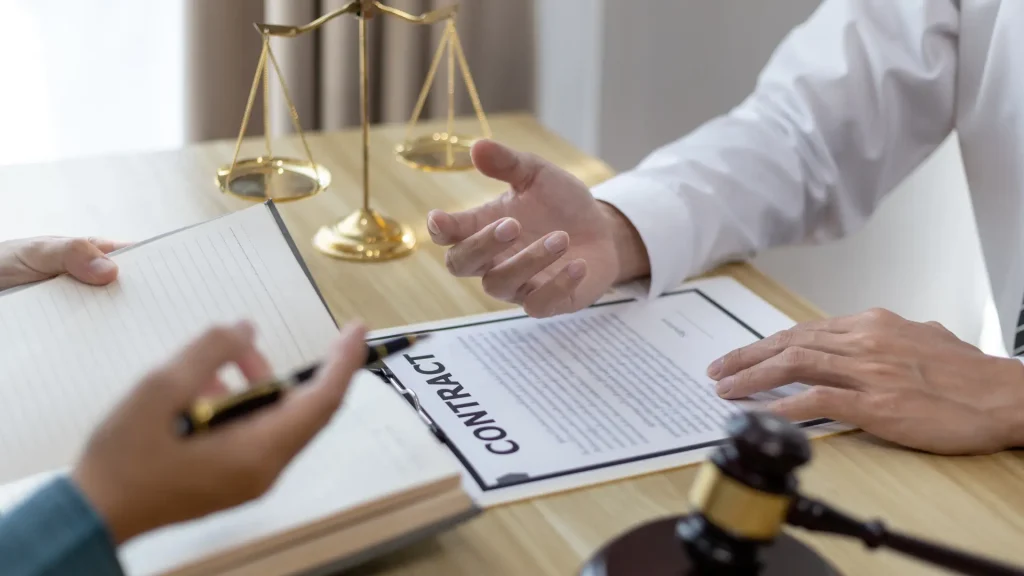
Most personal injury cases in Florida face pushback from the defense. Insurance companies and at-fault parties don’t hand over compensation willingly. They raise legal arguments attempting to shift blame, minimize injuries, or sidestep responsibility. These personal injury lawsuit file defenses are designed to weaken your claim, so having strong evidence and experienced legal support is essential. What is personal injury defense?
A skilled Fort Walton Beach personal injury lawyer can anticipate and counter these tactics with evidence, strategy, and precision. If you’re preparing to file a claim, it helps to understand the arguments you might face—and how to fight back.
What Are Common Defenses in Personal Injury Lawsuits?
Defendants in personal injury lawsuits typically use one or more standard defenses. These arguments attempt to weaken your case or eliminate their legal responsibility.
Some of the most common personal injury lawsuit defenses include:
- Contributory negligence: Claims that you caused or contributed to your injury.
- Assumption of risk defense: Suggests you voluntarily accepted a known danger.
- Pre-existing condition defense: Attempts to blame your injury on a medical issue you already had.
- Lack of causation: Argues the accident didn’t directly cause your injuries.
- No duty of care defense: Claims the defendant didn’t have a legal obligation to keep you safe.
- Failure to mitigate damages: You didn’t take reasonable steps to treat your injury or prevent further harm.
- Statute of limitations defense: Asserts you waited too long to file your claim.
Each of these defenses targets a different element of your case. Some challenge liability. Others challenge the extent of your losses. All require a clear, well-prepared response. Even when a defense sounds minor, it can undermine your entire claim if left unaddressed.
How Comparative Fault Can Reduce Compensation
Florida follows a comparative fault system, outlined in Florida Statutes § 768.81. Under this law, the court reduces your compensation if you share blame for the accident.
Under this rule, if the court finds you 20% at fault and the defendant 80% at fault, your compensation is reduced by 20%. You can still recover money, but the final amount depends on how much blame the court assigns to you.
Insurance companies use this strategy too often to reduce what they pay you. They may claim you acted carelessly, ignored warnings, or failed to protect yourself. Even if those work injury claims lack evidence, they can influence negotiations or trial outcomes if unchallenged.
That’s why documentation matters. Eyewitness statements, security footage, medical records, and expert analysis can show precisely what happened—and protect your right to full compensation. Witness credibility, physical evidence, and photographs taken at the scene often turn the tide in your favor.
How Defendants Deny Responsibility for Personal Injury Lawsuits: Defenses
In some cases, the defense takes a more aggressive approach. A liability denial injury case rests on the idea that the defendant didn’t cause or contribute to the accident at all. They may point to another person, an unknown factor, or even claim the injury happened elsewhere.
Another common tactic involves arguing that the injury was not caused by the defendant. For example, a store owner might claim your back injury came from a prior fall, not their slippery floor.
These strategies often rely on vague timelines or missing medical details. Your attorney must connect the event to your injury using records, expert input, and a clear timeline.
How Insurance Companies Use Delay Tactics
Delays benefit the defense. Some insurers stretch out investigations or drag their feet on responses, hoping you’ll give up or settle for less. This delay tactic allows memories to fade, evidence to disappear, and injuries to blur with other medical issues over time.
When delays become part of a defense strategy, legal intervention becomes essential. An attorney will work to benefit you by setting timelines, requesting formal discovery, and filing motions to hold the defense accountable. Without pressure, many insurers stall indefinitely.
You don’t need to wait for the delay to become obvious. When communication slows down or responses become vague, you can assume the clock has started working against you.
Why Legal Representation Is Key in Overcoming Defenses
Defendants don’t win cases because they have better facts. They win when they exploit gaps in evidence or pressure unrepresented victims into backing down. A strong legal team won’t let that happen.
An experienced attorney will:
- Collect and preserve vital evidence
- Find expert witnesses who support your claims
- Spot weak arguments in the defense’s case
- Challenge assumptions and expose inconsistencies
- Prepare you for depositions and cross-examinations
Every personal injury case involves risk, but good representation levels the playing field. You don’t need to expect every possible tactic—your lawyer does that for you. Building a response starts long before trial and often results in better settlements when insurers know you’re prepared.
How to Strengthen Your Case from the Start
Preparation matters just as much as response. To protect your case against these defenses, take these steps early:
- Report the incident immediately to create a written record.
- Get medical treatment and follow all instructions from your provider.
- Save receipts, bills, and paperwork related to your injury.
- Avoid discussing fault, especially on social media.
- Talk to a lawyer before speaking with insurance adjusters.
These small steps can protect your case from a personal injury lawsuit defense that seems minor but carries major consequences. Even a casual comment or social media post can create unnecessary hurdles. Every move counts.
Time Limits Matter More Than You Think
 Every state sets a deadline for filing personal injury claims. Florida’s statute of limitations defense allows the other side to shut down your lawsuit if you miss that deadline.
Every state sets a deadline for filing personal injury claims. Florida’s statute of limitations defense allows the other side to shut down your lawsuit if you miss that deadline.
You usually have two years from the date of the injury to file most personal injury claims. That window closes fast, especially if you’re healing, missing work, or dealing with medical appointments. Delays caused by complex injuries or multiple at-fault parties can shorten your practical filing time.
A missed deadline can do more than weaken your claim—it can wipe out your chance to recover anything. An early start allows your legal team to investigate, gather facts, and plan for every defense strategy.
Talk to a Fort Walton Beach Personal Injury Lawyer
You don’t have to know every defense tactic to stand up for yourself—you need the right team behind you. At The Bruner Law Firm, we’ve handled thousands of personal injury cases across Florida. We understand what personal injury defense attorneys try to argue and know how to push back.
Our Fort Walton Beach personal injury lawyers know how to protect your rights and your future. Our team is here to help you understand your rights and take the first step toward securing the necessary benefits. Contact us online or call (850) 243-2222 today for a free consultation about your case.
Related Post
Why You Should Get an Injury Lawyer for a Minor Car Accident
Worksite Injuries and Construction Accident Compensation in Florida







